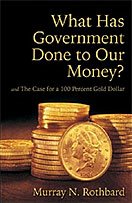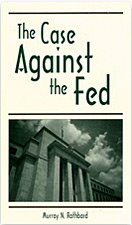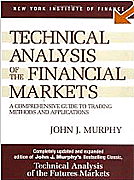NYPost prods Treasury for answers on government's rigging stock market
Maybe This Will Help Treasury Move Faster
By John Crudele
New York Post
Thursday, May 17, 2007
We'd love to help the U.S. Treasury comply with our request for information about the Working Group on Financial Markets.
So The Post's lawyer is sending the following letter, reminding the government of its legal obligations under the Freedom of Information Act.
* * *
Hugh Gilmore
Director, Disclosure Services
U.S. Treasury
Dear Mr. Gilmore:
I write to protest the failure by the Department of Treasury to process Mr. Crudele's request for documents relating to the Working Group on Financial Markets.
As you would be aware, under the Freedom of Information Act, the Department is required to process such requests within 20 working days: See 5 U.S.C. S. 552 (a).
Mr. Crudele lodged his request for documents almost 10 months ago. Yet he has yet to receive any document from the Department of Treasury or any explanation for the Department's failure to produce documents. ...
* * *
There's more to the letter, signed by the Post's lawyer, that I won't quote here.
But it essentially recaps that in my last column I showed how the Treasury's FOIA bureaucracy said it wanted to respond to my request "ASAP," even though our original letter seeking information about the secretive Working Group was sent nearly a year ago.
I know about internal discussions only because I was recently given documents detailing how Treasury was supposedly all worked up over the fact that my request had somehow "fallen through the cracks."
It's not that I think the notes and minutes of Working Group meetings will be arriving on my doorstep anytime soon.
What I do think is that Treasury "ASAP" will turn down my request and give me directions on how to appeal the decision.
Hey, I'm not naive. But I am persistent.
I understand how the game is played, especially since I'm after the innermost thoughts of a group whose nickname is the Plunge Protection Team.
The team was formed by a directive of President Reagan back in the late 1980s, right after the stock market had had some embarrassing sinking spells.
This was also when Robert Heller, who had just left his post as a Federal Reserve governor, proposed very publicly that the Fed should be allowed to rig the stock market in times of emergency.
That's all well and good -- and probably in the public interest.
But I'm now attempting to determine whether the Plunge Protection Team's powers have been expanded in recent years to situations that aren't necessarily emergencies.
I'd also like to know who, exactly, is being drawn into the consultations of the team.
Does it still consist of just top government officials like the Fed chairman and Treasury secretary?
Or have big shots from Wall Street firms -- the kind that could make money knowing the workings of the clandestine government operations -- also been recruited?
In that last column I documented how George Stephanopoulos, who was Bill Clinton's right-hand man, mentioned that the Plunge Protection Team is ready to unofficially act in the event of stock market problems.
Stephanopoulos said that the PPT already has acted during the crisis caused by the failure of Long Term Capital Management, which disintegrated in 1998 and nearly took the U.S. financial system down with it.
And I also know firsthand that such actions were discussed right after the terrorist attacks in 2001.
But the government has been coy about the Team.
Rep. Ron Paul, R-Texas, last year questioned Fed Chairman Ben Bernanke -- who was under oath -- about the Plunge Protection Team.
All the Fed chief would say is that the Team met "irregularly," was mostly advisory, and prepares reports.
"Irregularly": Like when the stock market needs a boost?
"Advisory": Like answering the question, "How can we get stock prices up?"
But I'm not so sure that the meetings are spaced that widely apart.
There have been stories in the press lately that the team is now having frequent meetings under Treasury Secretary Hank Paulson, who took over that position last summer after being the chairman of Goldman Sachs.
That's why we are sending another letter to remind Treasury of its legal obligations not to act in secret.
I think it's time for the government to be more responsive.
And just as an insurance policy I'm also reaching out to some members of Congress who I believe share that view.
Stay tuned.
* * *
Labels: central banks, John Crudele, market manipulation















![[Most Recent Quotes from www.kitco.com] [Most Recent Quotes from www.kitco.com]](http://www.kitco.com/images/live/t24_au_en_usoz_6.gif)
![[Most Recent Quotes from www.kitco.com] [Most Recent Quotes from www.kitco.com]](http://www.kitco.com/images/live/au_go_0030_ny.gif)
![[Most Recent Quotes from www.kitco.com] [Most Recent Quotes from www.kitco.com]](http://www.kitco.com/images/live/au_go_0365_ny.gif)
![[Most Recent Quotes from www.kitco.com] [Most Recent Quotes from www.kitco.com]](http://kitconet.com/charts/metals/silver/t24_ag_en_usoz_4.gif)

















0 ΣΧΟΛΙΑ (COMMENTS):
Post a Comment
<< Home